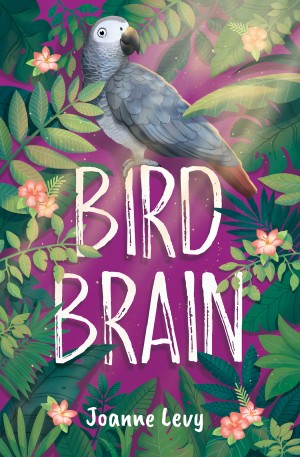There aren’t many fiction books for middle graders that address the subject of death in a straight-on, no-nonsense manner; this is unfortunate. Children of any age may, unfortunately, have to deal with a death within their personal circle and, although reading about the topic beforehand cannot substitute for the experience grief, it can provide a framework for understanding, a lessening of taboos around discussion of the topic, and a bit of familiarity with some of the issues that may be helpful during a difficult time.
Joanne Levy’s novel Sorry for Your Loss addresses death from a practical as well as an emotional point of view. Protagonist Evie’s parents own a funeral home, and Evie often helps out with details of the family business. Most of the time, she buys supplies or does basic housekeeping tasks. These responsibilities free her parents from many details and allow them to put their talents and energies into helping grieving families make the arrangements for funerals and burials. Evie knows that what her parents do is necessary and important; she hopes to become a funeral director, herself, when she grows up. Other kids in Evie’s class do not understand this lifestyle, thinking that Evie’s world is both ghoulish and creepy. She endures relentless teasing.
One day, a boy of about Evie’s age is brought to the funeral home. Oren’s parents have been killed in a car accident, and his new guardian, an uncle, is loving but essentially a stranger who doesn’t have much experience with children Oren’s age, especially a child who suddenly and tragically lost both parents. Evie’s parents ask her to help out with something other than practical arrangements for the first time ever; they hope that a companion of Oren’s own age will help him process his grief, as he has gone mute from the trauma. This is not an easy task for Evie to handle; she has a habit of blurting out inappropriate comments under stress and sometimes chatters and doesn’t know when to stop. Evie’s parents don’t realize that she is mourning, too; a very close friend on whom Evie relied, a friend from camp, has recently died. Evie has a lot to contend with for a child her age, but she does her best, continuing to reach out to Oren and showing concern and sympathy. Oren gradually begins to respond, especially when the two begin a very special craft project in memory of his parents. Both Evie and Oren grow in understanding and maturity as the story progresses.
Jewish values and experiences permeate the story from start to finish. Some are common Jewish life cycle events such as bat mitzvahs, Jewish day school attendance, shabbat, and consulting a local rabbi. Other cultural depictions, with which the reader may not be familiar, feature such burial customs as tahara (preparation of the body for burial), shiva, burying worn out prayer books, and the role of a Chevra Kadisha (burial society that makes sure all rites are handled respectfully and adhere to Jewish law).
This important topic is sensitively handled, turning an already excellent coming-of-age tale into an important addition to the middle grade bookshelf.
Michal Hoschander Malen is the editor of Jewish Book Council’s young adult and children’s book reviews. A former librarian, she has lectured on topics relating to literacy, run book clubs, and loves to read aloud to her grandchildren.





